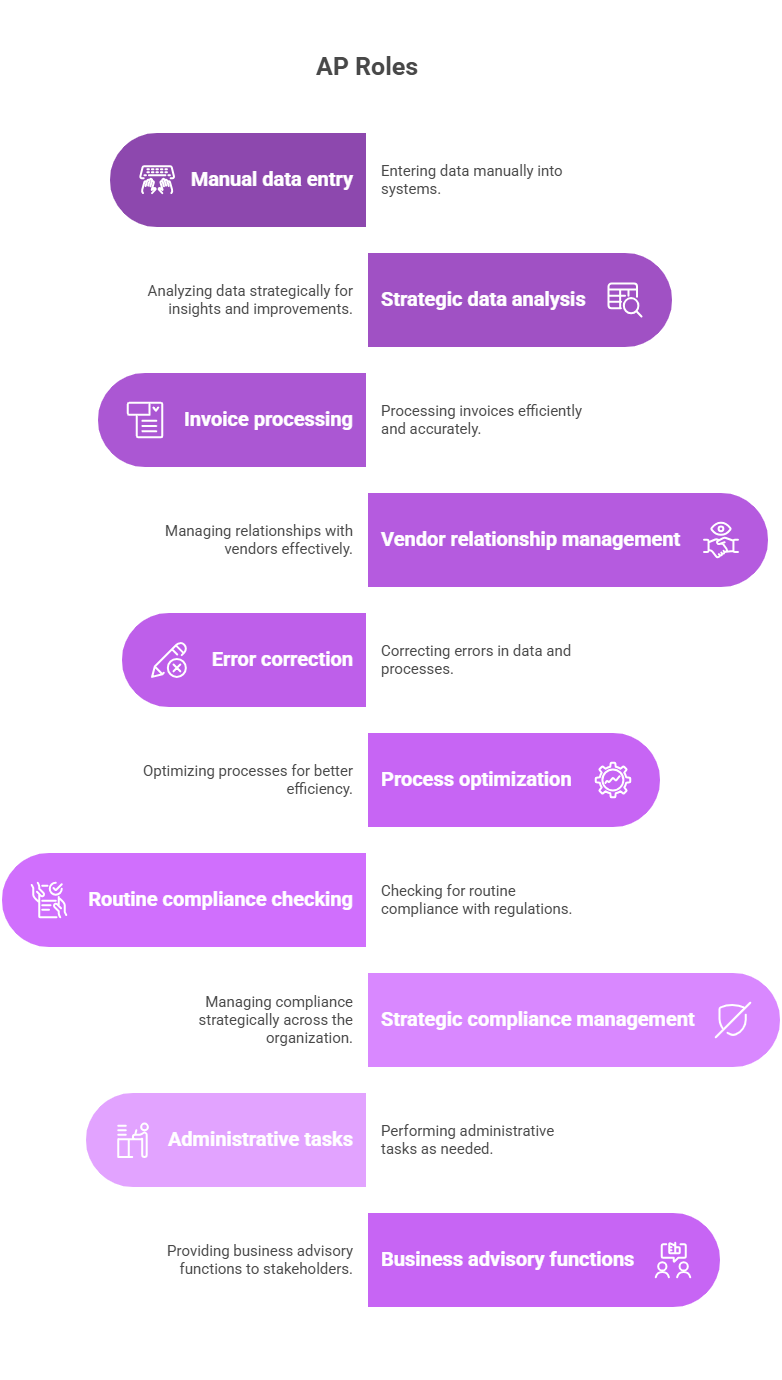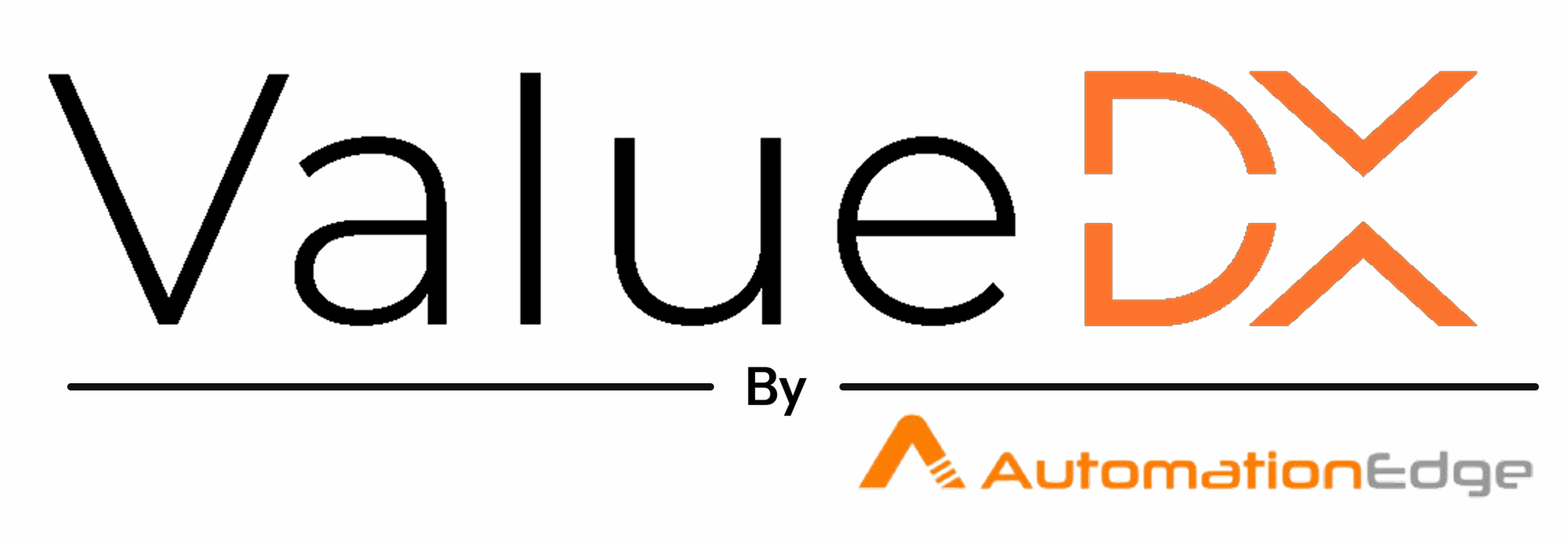
“Am I going to lose my job to a robot?” That’s the question Priya, an AP specialist with eight years of experience, asked me during a consultation last month. Her company had just announced they were implementing AI-powered automation by ValueDX, and she was genuinely scared about her future.
Six months later, she called me with a completely different tone. “I just got promoted to AP Operations Manager,” she said, excitement in her voice. “I’m now overseeing vendor relationship strategy and cash flow optimization. I never thought I’d be contributing to actual business strategy.”
That transformation perfectly captures what’s really happening in the AP world – roles aren’t disappearing, they’re evolving into something much more valuable and engaging.
The Death of Data Entry (And Why That’s Great News)
Let’s be honest about what traditional AP work used to look like. Hours spent typing invoice data into systems, manually matching purchase orders, chasing down approvals, and fixing errors that shouldn’t have happened in the first place.
I’ve watched AP professionals spend 70-80% of their time on repetitive, mind-numbing tasks that added zero strategic value to their organizations. No wonder job satisfaction was low and turnover was high.
But here’s what’s changing: automation is eliminating all that busy work, freeing up AP professionals to do actual finance work. The robots are taking over the boring stuff so humans can focus on the interesting challenges.
What AP Roles Actually Look Like Now
I’ve been tracking how AP roles are evolving across dozens of companies, and the transformation is remarkable. Instead of data entry clerks, I’m seeing:
Vendor Relationship Managers who build strategic partnerships, negotiate better terms, and optimize supplier performance.
Cash Flow Analysts who use real-time data to optimize payment timing and working capital management.
Process Improvement Specialists who identify inefficiencies and implement solutions across finance operations.
Compliance Managers who ensure regulatory adherence and manage audit processes strategically.
Financial Data Analysts who turn AP data into business insights that drive strategic decisions.
| Traditional AP Roles | Modern AP Roles |
|---|---|
| Manual data entry | Strategic data analysis |
| Invoice processing | Vendor relationship management |
| Error correction | Process optimization |
| Routine compliance checking | Strategic compliance management |
| Administrative tasks | Business advisory functions |

The Skills That Matter Now
The AP professionals who are thriving in automated environments have developed a completely different skill set. They’re not competing with technology – they’re leveraging it to become more valuable.
Data Analysis and Interpretation: Understanding what the numbers are telling you about vendor performance, cash flow patterns, and operational efficiency.
Vendor Relationship Management: Building partnerships that go beyond transactional interactions to create strategic value.
Process Design and Optimization: Identifying bottlenecks and designing workflows that maximize efficiency.
Technology Partnership: Working with AI systems to handle exceptions, validate outputs, and continuously improve automation performance.
Business Communication: Translating financial data into insights that non-finance stakeholders can understand and act upon.
The Career Growth Explosion
What’s really exciting is how automation has opened up career paths that didn’t exist before. I’ve watched AP professionals move into roles like:
- Financial Operations Manager
- Vendor Strategy Specialist
- Cash Flow Optimization Analyst
- Finance Technology Coordinator
- Business Process Improvement Manager
These aren’t just title changes – they’re genuine career advancement opportunities with higher salaries, more responsibility, and actual strategic impact.
The Human Elements That Can’t Be Automated
Despite all the technological advancements, there are crucial aspects of AP work that require human judgment, creativity, and relationship skills:
Exception Handling: When something doesn’t fit normal patterns, human judgment is essential for resolution.
Vendor Negotiations: Building trust and negotiating favorable terms requires human relationship skills.
Strategic Planning: Analyzing trends and making strategic recommendations about vendor strategy and cash flow management.
Cross-Functional Collaboration: Working with procurement, operations, and management teams to optimize business processes.
The Upskilling Roadmap
For AP professionals worried about the future, here’s the practical upskilling path I recommend:
Months 1-3: Learn data analysis basics. Start with Excel advanced functions, then move to basic business intelligence tools.
Months 4-6: Develop vendor management skills. Understand negotiation techniques, contract management, and supplier performance metrics.
Months 7-9: Master process improvement methodologies. Learn lean principles and workflow optimization techniques.
Months 10-12: Build technology partnership skills. Understand how AI systems work and how to optimize their performance.
The key is starting early and staying curious about how technology can enhance your capabilities rather than replace them.
How ValueDX Enables Career Evolution
What I’ve seen with ValueDX implementations is that they’re designed to elevate human capabilities rather than eliminate jobs. Their AI handles the routine processing while creating new opportunities for AP professionals to add strategic value.
The system provides rich analytics and insights that https://valuedx.com/accounts-payable-automation/can use for vendor performance management, cash flow optimization, and process improvement initiatives. Instead of spending time on data entry, professionals can focus on interpreting data and making strategic recommendations.
They also involve AP teams in the optimization process, teaching them how to work with AI systems, handle exceptions, and continuously improve automation performance. This creates valuable technology skills that are highly sought after in the job market.
Their implementation approach includes upskilling support, helping existing teams transition to higher-value roles rather than displacing them.
I’ve watched AP professionals working with ValueDX systems develop skills in data analysis, vendor relationship management, and process optimization that have led to promotions and career advancement.
The Skills Premium Reality
Here’s something encouraging – AP professionals with automation experience and strategic skills are commanding premium salaries in the job market. Companies are willing to pay significantly more for professionals who can manage automated systems while providing strategic insights.
The demand for these hybrid skill sets far exceeds the supply, creating excellent career opportunities for professionals willing to upskill and adapt.
Don’t Fear the Future – Shape It
The future of AP isn’t about humans versus machines – it’s about humans working with machines to achieve things neither could accomplish alone.
The professionals who embrace this change, develop new skills, and focus on strategic value creation will find themselves more valuable, more satisfied, and more successful than ever before.
Your experience in AP is an asset, not a liability. The question is whether you’ll use automation as a tool to elevate your career or wait for change to happen to you.
Read our next blog – Click here
Author: Gajanan Kulkarni

